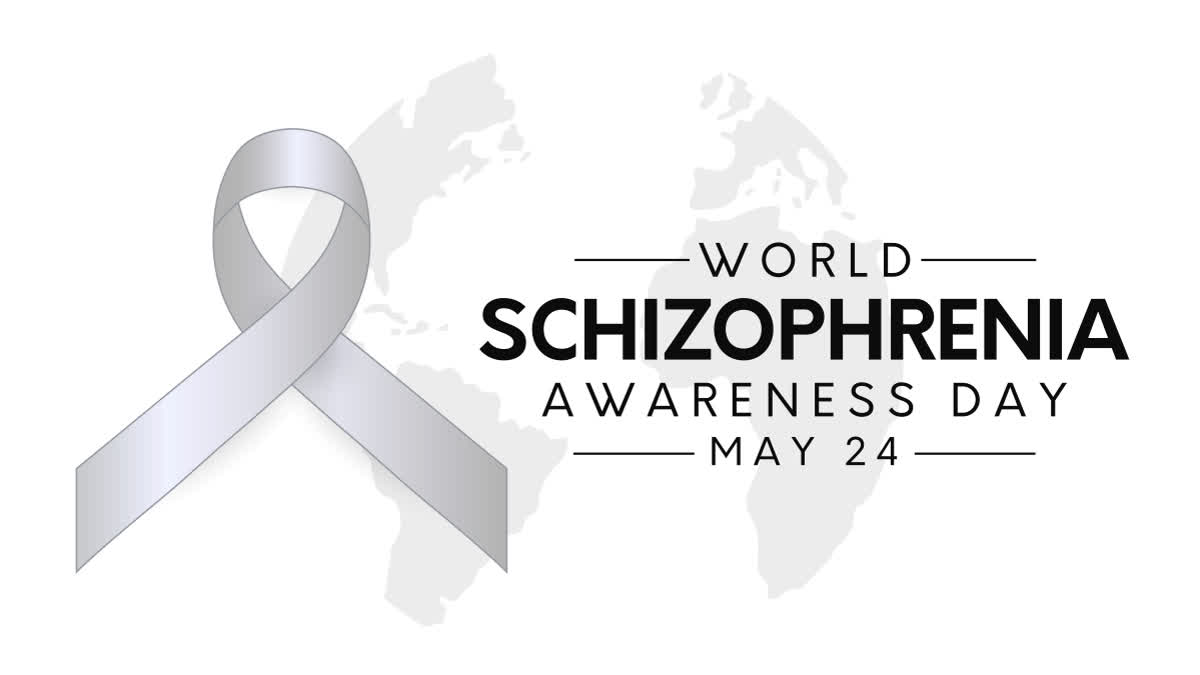Hyderabad: Every year on May 24th, the world observes World Schizophrenia Awareness Day, which attempts to lessen stigma attached to the illness and increase awareness of schizophrenia. The day is also a chance to demonstrate support for people who are affected by the condition and to promote early detection and intervention, which has been associated to better long-term outcomes, according to research.
What is schizophrenia?
A complicated and frequently stigmatized mental illness is schizophrenia. Many of those who have it experience discrimination, social isolation, and restricted access to support systems and medical care. A person with schizophrenia suffers from a severe mental disorder that causes disruptions in their thoughts, behaviors, emotions, and perceptions.
On the other hand, hallucinations, delusions, and disordered thinking and behavior are some of the symptoms of schizophrenia, an illness in which a person has an altered perception of reality. A person with bipolar disorder has normal mood swings in between episodes of mania and depression. Mania episodes are characterized by an elevated mood, increased energy, impulsive and dangerous behavior, or difficulties focusing, whereas a depressive phase is characterized by low energy, social withdrawal, sadness and hopelessness, etc.
Symptoms:
- Persistent false beliefs.
- Encounters with power, control, or silence.
- Persistent hallucinations.
- Disorganized thought is frequently seen as garbled or unnecessary speech
- Extremely erratic behavior.
- Severe agitation, fatigue, or persistence of odd postures.
- Individuals who have schizophrenia frequently struggle with cognitive or thinking abilities like memory, focus, and problem-solving for an extended period of time.
Treatment for Schizophrenia:
For schizophrenia, anti psychotic drugs are the first line of treatment. They are typically given once a day as a pill or liquid, and they can help lessen the frequency and severity of psychotic episodes. Moreover, therapy may be useful in controlling schizophrenia symptoms.
Global Impact:
According to WHO (World Health Organization), approximately 24 million people, or 1 in 300 persons (0.32%), worldwide suffer with schizophrenia. Adults make up 1 in 222 of this rate, or 0.45%. Compared to many other mental disorders, it is less prevalent. The most common times for onset are late adolescence and the twenties, and men often experience onset sooner than women.
Status of India:
The NMHS conducted a population-based cross-sectional study in 12 Indian states from 2015 to 2016, encompassing 34,802 adults. The study found a lifetime prevalence of schizophrenia spectrum disorders at 1.41%, with a current prevalence of 0.42%. A substantial treatment gap of 72% existed for current cases, rising to 83.3% in urban non-metro areas.
Significant distress and impairment in social, familial, professional, educational, and other crucial areas of life are often linked to schizophrenia. Family support is a crucial component of managing schizophrenia, even though it isn't a treatment in and of itself. Understanding what it's truly like to live with these symptoms on a daily basis is crucial for supporting a loved one who has schizophrenia. This goes beyond simply knowing about the illness's symptoms and available treatments. By doing this, you can help your loved one better manage their condition by showing them empathy and support.
Films about Schizophrenia in Hollywood:
- A Beautiful Mind
- Savage Grace
- Benny and Joon
- The Soloist
- Take Shelter
- Clean, Shaven
- Bullet
- Shutter Island
- Donnie Darko
- Spider
- Words on Bathroom Walls
- Shutter Island
Indian films depicting the challenges of a Schizophrenic person:
- Karthik Calling Karthik
- Tamasha
- 15 Park Avenue
- Shabd
- Woh Lamhe
- Kriti
Famous People with Schizophrenia:
Mary Todd Lincoln, John Nash, Eduard Einstein, John Hinckley, Jr, Vincent van Gogh, Parveen Babi, Lionel Aldridge , Bettie Page , Veronica Lake, Tom Harrell.



